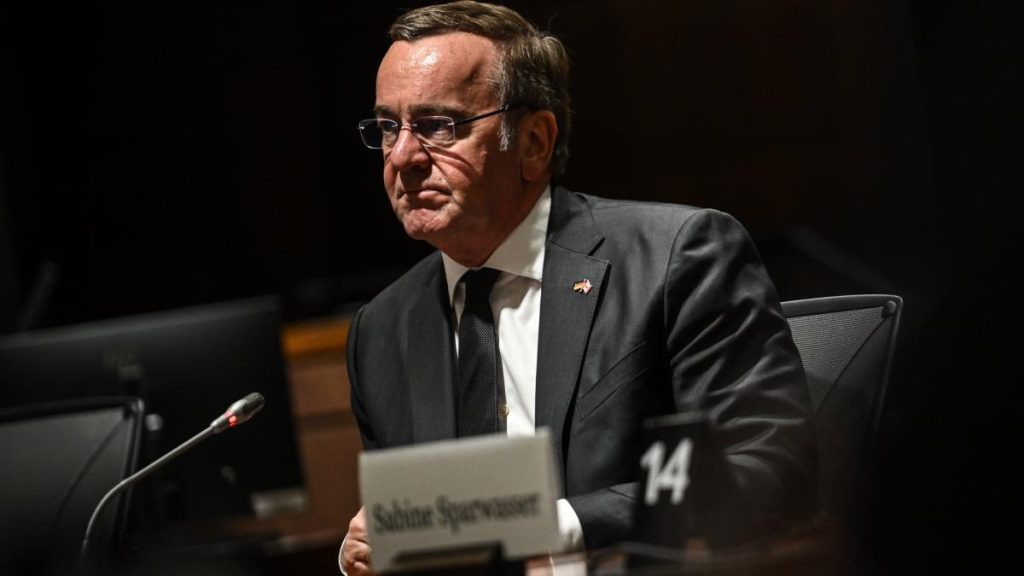Boris Pistorius, the German Defense Minister, is reportedly frustrated by the lack of budget funds for the Bundeswehr. The issue arose following warnings from Chancellor Olaf Scholz regarding budget discipline for ministers. Pistorius expressed his frustration during a coalition breakfast meeting, where he criticized the lack of financial commitments for the defense budget. However, his remarks were not seen as a threat of resignation. Pistorius had previously called for an increase of at least 6.5 billion euros in the defense budget for 2025, while the current allocation stands at 52 billion euros, according to the Ministry of Finance’s guidelines set by Christian Lindner.
The “Süddeutsche Zeitung” reported on Pistorius’ discontent, citing sources from the coalition breakfast attended by members of the Ampel coalition. In response to Chancellor Scholz’s call for budget discipline without specifying the defense sector, Pistorius stated, “I don’t have to do this.” The Defense Minister’s supporters believe that his opponents are not realizing the seriousness of the current security situation, particularly in light of the recent actions of Russian President Vladimir Putin. Pistorius has previously advocated for exempting additional defense spending resulting from the Russian attack on Ukraine from the debt brake, to ensure a reliable annual defense expenditure of at least two percent of the GDP.
Pistorius has argued that national security should take precedence over the debt brake, in order to maintain a sufficient defense budget amidst growing security threats. However, Lindner has consistently opposed any exceptions to the debt brake, and Scholz has not publicly supported the Defense Minister’s position. Pistorius’ call for increased defense spending stems from the security implications of Putin’s actions, which he believes warrant a reevaluation of budget priorities. The issue highlights tensions within the coalition government over defense budget allocations and the need for increased funding to address evolving security challenges.
Despite Pistorius’ efforts to emphasize the importance of increasing defense spending in response to the security threats posed by Russian aggression, his calls have not received unanimous support within the government. The lack of consensus on defense budget priorities reflects broader disagreements within the coalition regarding fiscal discipline and national security interests. The dynamics within the coalition, as well as the external security threats facing Germany, will continue to shape discussions on defense budget allocations and the balance between budget discipline and ensuring national security preparedness. The Defense Minister’s frustrations highlight the need for a coherent and strategic approach to defense funding that addresses both short-term security needs and long-term defense priorities in the face of evolving security challenges.


